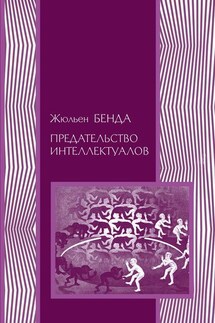Fly Hunter: The Story of an Inquisitor - страница 26
Aman-Jalil found many voluntary helpers among small shopkeepers and the dispossessed, provided many ears and eyes at his disposal. Patriots didn't demand any pay, their share in this universal plunder.
Envy! Here is the foundation of this vile layer of society. Here is its nutrient medium, always teeming with bacteria that shake the world with a terrible epidemic of hatred, devastating and terrifying for many generations. In every quarter, on every street, in every house of cities, towns, and villages, there were people who knew what the neighbor had for lunch. They bombarded the Inquisition with anonymous letters, revealing such intimate details that the inquisitors marveled at how quickly society sought to return to a slave-owning system. People didn't know what to do with the freedom they received and begged to be returned to slavery, where each would dream again of a kind master and a warm bowl of porridge.
So, Aman-Jalil's department was buzzing with work. Those who paid their dues to Aman-Jalil lived comfortably: with a salary of a hundred coins, each adult clan member had a splendid mansion, two huge country houses, one of which had to be by the bluest sea in the world. They bought freely for their wives, daughters, and mistresses—cars, furs costing fifteen thousand coins each, not to mention "trifles" like diamond and gold baubles. And nobody dared ask them any questions that could cause insomnia. Numerous letters, signed and unsigned, exposing underground millionaires, were intercepted. Gossips and facts were meticulously registered and compiled, so underground millionaires didn't have to hide in the Sierra Mountains. Against those naive patriots who dared to sign their names, cases of slander against respected and revered people were opened. The "slanderers" were thrown into prisons or exiled to the uninhabited islands of Lusin. "Let them gossip there!"
Lies were rewarded, and truth was persecuted. It became profitable to live by lies to survive, just to survive. People adapted, with difficulty, but adapted. There was no other way to live. You could think what you wanted, but aloud you had to say only what the newspapers suggested, what was preached from the high tribunes, and what they started teaching even in schools and kindergartens. Portraits of Iosif Besarionis and Ahmed appeared everywhere. "The Fuhrer thinks, and we implement these thoughts in life!" "Let's turn great plans into reality!" "The whole world is watching us!" They just didn't add: "with horror"!
And alongside Ahmed, more and more often at official receptions, one could see the figure of Aman-Jalil. He and his kind were gaining strength and already casting sideways glances at those who had found and raised them—supporting roles no longer satisfied them. They needed a leader, they were needed by a leader, and they created an earthly god, offering themselves as slaves. "Great Iosif Besarionis!" "Incomparable Iosif Besarionis!" "Wise Iosif Besarionis!" "Iosif Besarionis—teacher of all nations of the world!" "Iosif Besarionis—leader of all countries!" Such slogans adorned the walls of houses and along highways, especially along the transcontinental route. But the new generation was mistaken in thinking that the leader would remain loyal to them. He had propelled them, determining who would be pawns and who would be figures. He chose those capable and ready for anything: to abandon parents, forget about brothers and sisters, betray wife and friend, deny children. He advanced every sharp-toothed, every fanged one; his advice was the law for everyone, but those who did not understand their debt to him, who showed even the slightest freedom, he discarded from the board of his game, understandable only to him alone. But perceptive ones were advanced to important posts in his party of emir, in the army, in the police, and most importantly, in the Inquisition. The stake was placed on the Inquisition. After Torquemada, Iosif Besarionis was the first to realize the influence of the Inquisition on the minds and feelings of society and understood that whoever owned the Inquisition, owned those minds and feelings. And he worked tirelessly.






